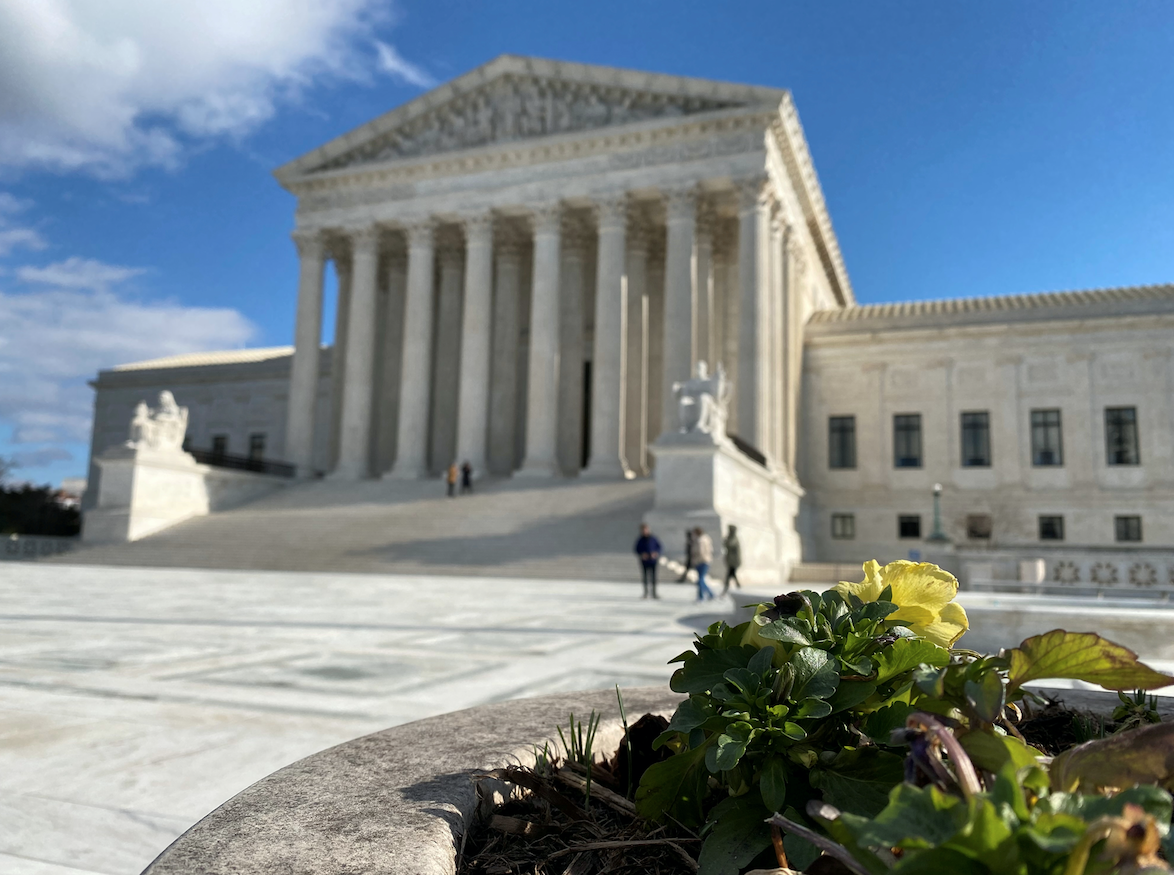Jane Bambauer is a Professor of Law at the University of Arizona. Prof. Bambauer’s research assesses the social costs and benefits of Big Data, and questions the wisdom of many well-intentioned privacy laws. Her articles have appeared in the Stanford Law Review, the Michigan Law Review, the California Law Review, and the Journal of Empirical Legal Studies. Prof. Bambauer’s own data-driven research explores biased judgment, legal education, and legal careers. She holds a B.S. in mathematics from Yale College and a J.D. from Yale Law School.
Jane Bambauer Responds to Louis Michael Seidman’s “Can Free Speech Be Progressive?”
How Speech Libertarianism Serves Progressives

Gadsden flag: created by Christopher Gadsden, a Charleston-born brigadier general in the Continental Army in run up to Revolutionary War, used by Continental sailors to serve as inspiration against British threat, taken up by Libertarians as a symbol of ideological enthusiasm for minimal government and the rights of individuals.
Louis Seidman argues that free speech cannot be a resource for progressive lawmaking. I agree. American free speech law is unquestionably libertarian. It only corrodes regulation. Thus, as a source of law, free speech actively advances a progressive agenda only in circumstances where libertarianism is better than the alternatives—that is, where the government is enacting conservative or oppressive laws.
But the further conclusion that modern free speech law disserves progressive causes does not have to follow from this insight, and I think it’s wrong. Indeed, I’m pre-committed to this position because I have argued, in an article called Information Libertarianism, that even the deepest blue liberal should be libertarian where speech is concerned. My coauthor and I were speaking to the same audience that Prof. Seidman is, and about the same questions. (It begins “Any liberal who still loves the First Amendment is a fool. So says most recent legal scholarship.”)
Our disagreement comes from how Prof. Seidman and I value government constraints in the specific context of speech. Prof. Seidman believes this is useful only in extreme and unlikely cases of progressivism gone awry. In contrast, I think the First Amendment has salutary effects even in the garden variety cases, even where it frustrates regulations that are favored by progressives. Speech restrictions usually change the information environment in order to achieve some other goal indirectly. Free speech doctrine disfavors this approach. It prevents lawmakers from enacting policy in indirect and opaque ways, and steers them to use direct regulations instead. For example, in the case Sorrell v. IMS, the goal of Vermont’s restrictions on pharmaceutical industry data-gathering and behavioral marketing were designed to make doctors less likely to prescribe name brand, patented drugs when a generic drug would be just as suitable. That’s a terrific goal, but a poor mechanism. A more transparent, more targeted, and more direct regulation would apply to doctors—by requiring them to prescribe medications in a certain order, for example, or by requiring an explanation for recommending a patented medication before a generic drug has been used. It’s true that a direct regulation of this sort would interfere with physician autonomy, but the law that Vermont enacted is equally skeptical about the wisdom and independence of doctors. Instead of addressing the tension between public health, physician autonomy, and drug development incentives openly, the state used a scattershot speech restriction that would have arbitrary and ambiguous effects on all three interests.
“I have argued . . . that even the deepest blue liberal should be libertarian where speech is concerned.”
Speech restrictions are necessarily crude. They are based on theories that make strong assumptions about how people will make decisions in the absence of the offending speech. Those assumptions are difficult to test, but existing evidence suggests that voters and legislators tend to overestimate risk and underestimate benefit—more so than with regulations of conduct and products.
Speech really is different from other “entitlements,” to use Prof. Seidman’s framing. Thus, the First Amendment can serve progressive movements by guiding them to enact direct regulations instead of censorship work-arounds.
In one of the most thought-provoking sections of Prof. Seidman’s article, he argues that free speech law is spilling over into traditionally non-speech domains (like property law) and warping them into laissez-faire doctrines. If this were true, then the premise of Information Libertarianism would be wrong and I would withdraw my advocacy of it. But Prof. Seidman has not carried his burden of proof. It’s telling that he used oddball cases at the contentious edge of free speech to construct his argument. But even if one agreed with Prof. Seidman’s analysis of the union fee and Boy Scouts cases, they are atypical. Nearly all forms of wealth redistribution will be easily and properly recognized by the courts as non-speech rules. While it is true that speech “cannot remain fixed while property entitlements are redistributed,” the First Amendment does not require speech power to be fixed. We could impose aggressive taxes that could incidentally change the media landscape significantly. Today’s generally applicable laws surely do have unintended effects on speech.

Citizens United decided that political spending is a form of protected speech under the First Amendment, and the government may not keep corporations or unions from spending money to support or denounce individual candidates in elections.
The larger problem for progressives is that the direct forms of lawmaking like tax and transfer programs, restrictions on medical care, and anti-discrimination laws are politically untenable. In fact, that’s often why speech laws are passed—as a dodge from the discipline that a more direct form of regulation would receive from voters and constituents. It’s tempting to wave away these problems and to insist that the First Amendment has broken American democracy, too, thanks to the Citizens United case. I don’t think so. The problem is that progressivism is not popular. The twin goals of distributional justice and correcting discrimination are broadly endorsed in the abstract but repugnant to voters when their terms become concrete. And this happens in other countries, too, when constituents believe their power is threatened by immigration or cultural shifts. (See, e.g., the nail-biting elections and referenda in Europe.) We should not expect voters to be particularly progressive since the goals of progressivism require counter-majoritarian corrections. Yet if Prof. Seidman had written the article “Can Democracy Be Progressive?,” readers would recognize that democracies have made progress—much more progress than non-democracies—despite the seeming impossibility.




